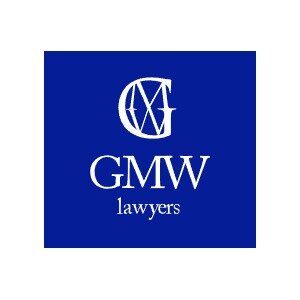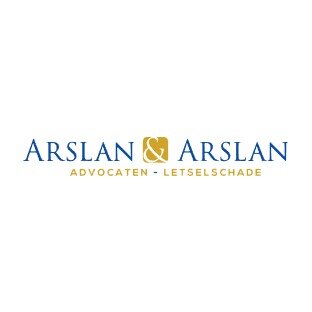Best Energy Regulatory Law Lawyers in The Hague
Share your needs with us, get contacted by law firms.
Free. Takes 2 min.
List of the best lawyers in The Hague, Netherlands
About Energy Regulatory Law in The Hague, Netherlands
Energy Regulatory Law governs the production, distribution, consumption, and regulation of energy resources, including electricity, gas, oil, and renewables. In The Hague, which serves as a central hub for the Dutch government and several international institutions, Energy Regulatory Law plays a key role in balancing national energy interests, environmental protection, consumer rights, and market competition. Dutch energy laws align closely with European Union directives and focus on sustainable energy transitions, security of supply, and fair energy pricing. Regulatory oversight and enforcement are mainly carried out by national authorities, influencing both private consumers and large-scale energy providers operating in The Hague.
Why You May Need a Lawyer
You may need a lawyer specializing in Energy Regulatory Law in The Hague for several reasons. Common situations include:
- Negotiating or drafting contracts for energy supply or renewable energy projects
- Resolving disputes between tenants, landlords, or businesses about energy costs and services
- Complying with changing regulations on energy conservation, emissions, or energy efficiency standards
- Navigating licensing or permit issues for power generation, distribution, or installation of solar panels and wind turbines
- Responding to enforcement actions or inspections from governmental authorities
- Handling mergers, acquisitions, or investments in the energy sector
- Seeking compensation for damages caused by energy providers or faulty energy equipment
Local Laws Overview
Energy regulations in The Hague operate within the broader Dutch and EU legal frameworks. Key aspects include:
- Electricity and Gas Act (Elektriciteitswet and Gaswet): Governs the generation, distribution, and trade of electricity and natural gas. Ensures fair pricing and consumer protections.
- Authority for Consumers and Markets (ACM): The ACM is the main energy market regulator, supervising competition, consumer rights, and regulatory compliance.
- Climate Agreement (Klimaatakkoord): Sets national goals for reducing greenhouse gas emissions and increasing renewable energy use, heavily influencing projects and policies in The Hague.
- Environmental Permits: Local and regional governments, including the municipality of The Hague, issue permits for energy projects, taking environmental impact into account.
- Energy Performance Standards: Buildings must meet specific energy efficiency requirements, affecting homeowners, property developers, and businesses.
- European Union Directives: Dutch energy law frequently updates to ensure alignment with EU targets and market liberalization efforts.
Frequently Asked Questions
What is Energy Regulatory Law?
Energy Regulatory Law includes laws and regulations governing the production, distribution, trade, and use of energy, as well as the activities of market participants and consumers.
Who oversees energy regulation in The Hague?
The Authority for Consumers and Markets (ACM) is the primary regulator. The Ministry of Economic Affairs and Climate Policy also plays a significant role in policymaking.
Do I need a permit to install solar panels in The Hague?
Most homeowners do not need a permit for standard residential installations, but certain historic or protected buildings in The Hague may require special permission from the municipality.
What should businesses know before starting an energy project?
Businesses must comply with environmental, zoning, and energy efficiency laws. Early consultation with the municipality and regulatory authorities is advised to streamline the process and avoid legal issues.
Can energy suppliers change prices at will?
Price changes must comply with regulations and fair market practices. The ACM monitors energy pricing to protect consumers and prevent unfair practices.
What if I have a dispute with my energy supplier?
Start by discussing the issue with your supplier. If unresolved, you can file a complaint with the ACM or seek legal advice to address contractual or regulatory issues.
How does the Dutch Climate Agreement affect energy regulation?
It sets ambitious targets for reducing emissions and increasing renewable energy. This leads to updated regulations and subsidies for sustainable energy projects in The Hague.
What support exists for renewable energy initiatives?
There are various government subsidies, tax incentives, and regulatory support for individuals and businesses investing in renewable energy, including solar and wind projects.
Are tenants responsible for energy compliance in rental properties?
Generally, property owners are responsible for the energy performance of buildings. However, lease agreements should specify obligations for energy use and compliance.
How does EU law impact energy regulation in The Hague?
EU directives shape much of Dutch energy regulation, impacting market structure, emissions targets, consumer rights, and renewable energy standards in The Hague.
Additional Resources
If you need more information or assistance, consider these resources:
- Authority for Consumers and Markets (ACM): Supervises and enforces energy laws, publishes guidelines, and handles consumer complaints.
- Ministry of Economic Affairs and Climate Policy: Sets national energy policies and implements climate agreements.
- Netbeheer Nederland: The association for Dutch energy network operators, providing information on grid access and technical requirements.
- Municipality of The Hague: Local authority for permits, renewable initiatives, and community energy projects.
- Legal Aid Board (Raad voor Rechtsbijstand): Offers help finding qualified lawyers and providing legal support for eligible individuals.
Next Steps
If you require legal assistance with Energy Regulatory Law in The Hague:
- Identify the specific legal issue or challenge you are facing
- Gather all relevant documentation, such as contracts, permits, correspondence, and regulatory notices
- Consult with a specialized energy lawyer who has experience working with Dutch and EU energy regulations
- Reach out to the local municipality or relevant regulatory authorities if your issue relates to permits or compliance
- Consider mediation or formal complaints procedures if dealing with disputes involving energy suppliers
Lawzana helps you find the best lawyers and law firms in The Hague through a curated and pre-screened list of qualified legal professionals. Our platform offers rankings and detailed profiles of attorneys and law firms, allowing you to compare based on practice areas, including Energy Regulatory Law, experience, and client feedback.
Each profile includes a description of the firm's areas of practice, client reviews, team members and partners, year of establishment, spoken languages, office locations, contact information, social media presence, and any published articles or resources. Most firms on our platform speak English and are experienced in both local and international legal matters.
Get a quote from top-rated law firms in The Hague, Netherlands — quickly, securely, and without unnecessary hassle.
Disclaimer:
The information provided on this page is for general informational purposes only and does not constitute legal advice. While we strive to ensure the accuracy and relevance of the content, legal information may change over time, and interpretations of the law can vary. You should always consult with a qualified legal professional for advice specific to your situation.
We disclaim all liability for actions taken or not taken based on the content of this page. If you believe any information is incorrect or outdated, please contact us, and we will review and update it where appropriate.










